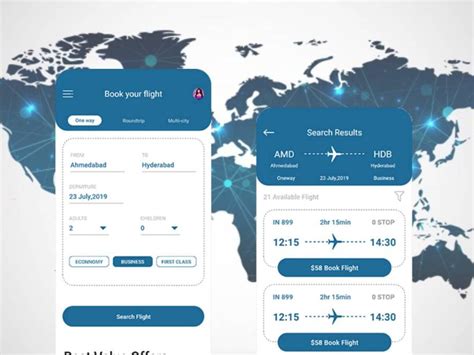The airline industry has undergone significant transformations in recent years, driven by advances in mobile technology. From check-in and boarding to in-flight entertainment and services, mobile tech has revolutionized the way airlines operate and interact with passengers. This shift has not only improved the overall travel experience but also enhanced operational efficiency and reduced costs.
Mobile technology has enabled airlines to streamline processes, reduce paper waste, and provide passengers with more control over their journey. With the rise of mobile check-in, passengers can now print or download their boarding passes, eliminating the need for paper tickets and reducing wait times at airport counters. Many airlines have also introduced mobile apps that allow passengers to access flight information, track their baggage, and receive real-time updates on flight schedules and delays.
The use of mobile technology in airlines has also transformed the in-flight experience. With the proliferation of mobile devices, passengers can now access a wide range of entertainment options, including movies, TV shows, music, and games, directly on their personal devices. This has reduced the need for traditional in-flight entertainment systems and enabled airlines to offer more personalized and engaging experiences.
Benefits of Mobile Tech in Airlines

The adoption of mobile technology in airlines has numerous benefits, including:
- Improved passenger experience: Mobile tech enables airlines to provide passengers with more control over their journey, from check-in to in-flight entertainment.
- Increased operational efficiency: Mobile tech streamlines processes, reduces paper waste, and enables airlines to respond quickly to changing circumstances.
- Cost savings: Mobile tech reduces the need for traditional infrastructure, such as check-in counters and in-flight entertainment systems.
- Enhanced customer engagement: Mobile tech enables airlines to interact with passengers in real-time, providing personalized offers and services.
Mobile Check-in and Boarding
Mobile check-in and boarding have revolutionized the way passengers interact with airlines. With mobile check-in, passengers can print or download their boarding passes, eliminating the need for paper tickets and reducing wait times at airport counters. Many airlines have also introduced mobile apps that allow passengers to access flight information, track their baggage, and receive real-time updates on flight schedules and delays.

In-Flight Entertainment and Services
The use of mobile technology in airlines has also transformed the in-flight experience. With the proliferation of mobile devices, passengers can now access a wide range of entertainment options, including movies, TV shows, music, and games, directly on their personal devices. This has reduced the need for traditional in-flight entertainment systems and enabled airlines to offer more personalized and engaging experiences.

Challenges and Limitations
While mobile technology has revolutionized the airline industry, there are still challenges and limitations to its adoption. These include:
- Infrastructure and connectivity: The availability and quality of Wi-Fi and cellular connectivity can vary significantly, affecting the performance of mobile apps and services.
- Security and data protection: The use of mobile technology in airlines raises concerns about data protection and security, particularly in relation to sensitive passenger information.
- Regulatory frameworks: The adoption of mobile technology in airlines is subject to regulatory frameworks and guidelines, which can vary across countries and regions.
Future Developments and Trends
The future of mobile technology in airlines looks promising, with several developments and trends on the horizon. These include:
- Artificial intelligence and machine learning: The use of AI and ML in airlines is expected to enhance passenger experiences, improve operational efficiency, and reduce costs.
- Internet of Things (IoT): The integration of IoT devices and sensors is expected to improve aircraft maintenance, reduce fuel consumption, and enhance passenger safety.
- 5G networks: The adoption of 5G networks is expected to enable faster data transfer rates, lower latency, and greater connectivity, enhancing the overall passenger experience.

Gallery of Mobile Tech in Airlines





FAQs
What are the benefits of mobile technology in airlines?
+The benefits of mobile technology in airlines include improved passenger experience, increased operational efficiency, cost savings, and enhanced customer engagement.
What are the challenges and limitations of mobile technology in airlines?
+The challenges and limitations of mobile technology in airlines include infrastructure and connectivity, security and data protection, and regulatory frameworks.
What are the future developments and trends in mobile technology in airlines?
+The future developments and trends in mobile technology in airlines include artificial intelligence and machine learning, Internet of Things (IoT), and 5G networks.
We hope this article has provided you with valuable insights into the role of mobile technology in airlines. As the industry continues to evolve, we can expect to see even more innovative applications of mobile tech that enhance passenger experiences, improve operational efficiency, and reduce costs.
